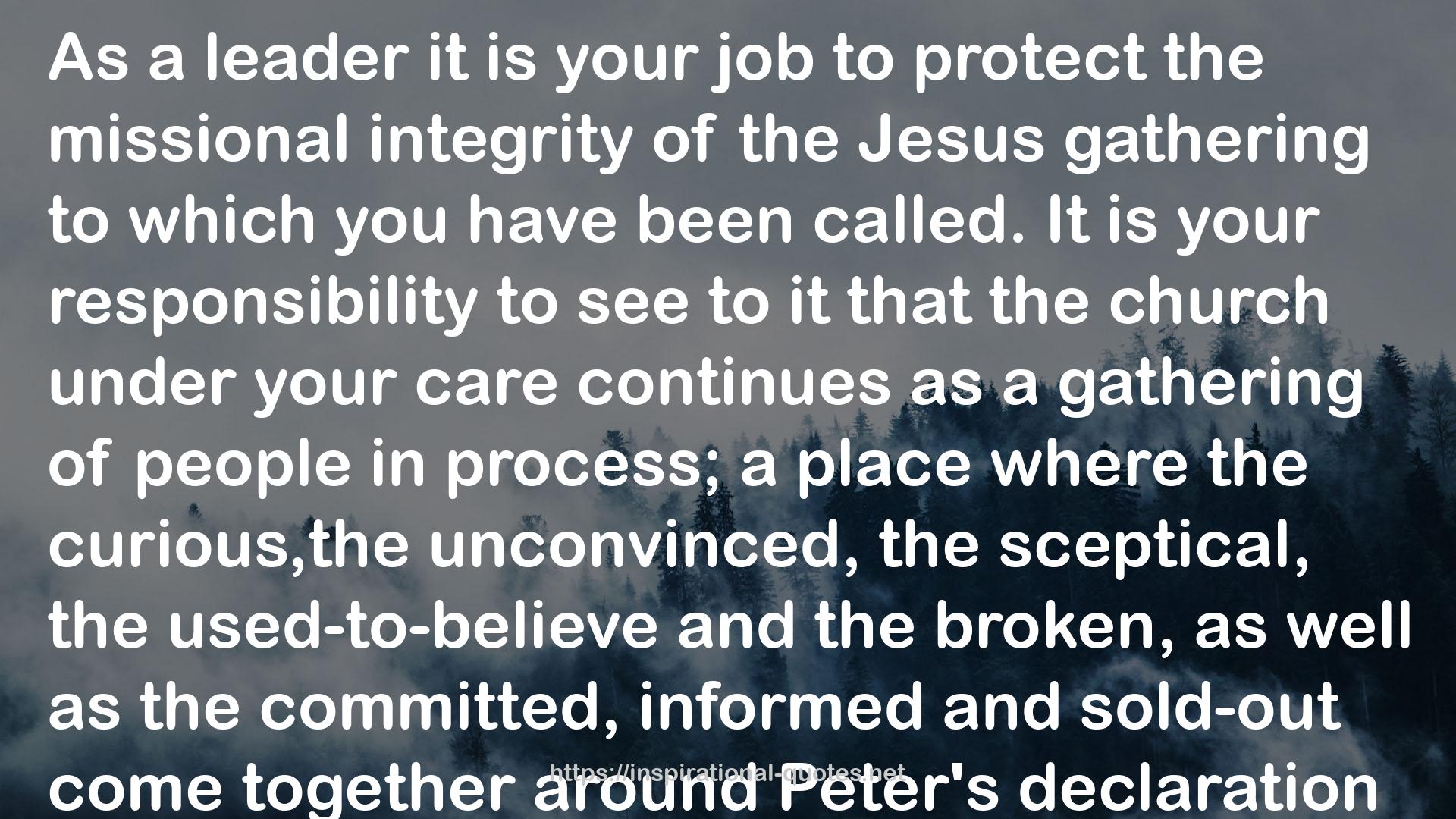3
" We are committed to involving as many people as possible, as young as possible, as soon as possible. Sometimes too young and too soon! But we intentionally err on the side of too fast rather than too slow. We don’t wait until people feel “prepared” or “fully equipped.” Seriously, when is anyone ever completely prepared for ministry?
Ministry makes people’s faith bigger. If you want to increase someone’s confidence in God, put him in a ministry position before he feels fully equipped.
The messages your environments communicate have the potential to trump your primary message. If you don’t see a mess, if you aren’t bothered by clutter, you need to make sure there is someone around you who does see it and is bothered by it. An uncomfortable or distracting setting can derail ministry before it begins. The sermon begins in the parking lot.
Assign responsibility, not tasks.
At the end of the day, it’s application that makes all the difference. Truth isn’t helpful if no one understands or remembers it.
If you want a church full of biblically educated believers, just teach what the Bible says. If you want to make a difference in your community and possibly the world, give people handles, next steps, and specific applications. Challenge them to do something. As we’ve all seen, it’s not safe to assume that people automatically know what to do with what they’ve been taught. They need specific direction. This is hard. This requires an extra step in preparation. But this is how you grow people.
Your current template is perfectly designed to produce the results you are currently getting.
We must remove every possible obstacle from the path of the disinterested, suspicious, here-against-my-will, would-rather-be-somewhere-else, unchurched guests. The parking lot, hallways, auditorium, and stage must be obstacle-free zones.
As a preacher, it’s my responsibility to offend people with the gospel. That’s one reason we work so hard not to offend them in the parking lot, the hallway, at check-in, or in the early portions of our service. We want people to come back the following week for another round of offending!
Present the gospel in uncompromising terms, preach hard against sin, and tackle the most emotionally charged topics in culture, while providing an environment where unchurched people feel comfortable.
The approach a church chooses trumps its purpose every time.
Nothing says hypocrite faster than Christians expecting non-Christians to behave like Christians when half the Christians don’t act like it half the time.
When you give non-Christians an out, they respond by leaning in. Especially if you invite them rather than expect them. There’s a big difference between being expected to do something and being invited to try something.
There is an inexorable link between an organization’s vision and its appetite for improvement. Vision exposes what has yet to be accomplished. In this way, vision has the power to create a healthy sense of organizational discontent. A leader who continually keeps the vision out in front of his or her staff creates a thirst for improvement. Vision-centric churches expect change. Change is a means to an end. Change is critical to making what could and should be a reality.
Write your vision in ink; everything else should be penciled in. Plans change. Vision remains the same. It is natural to assume that what worked in the past will always work. But, of course, that way of thinking is lethal. And the longer it goes unchallenged, the more difficult it is to identify and eradicate. Every innovation has an expiration date. The primary reason churches cling to outdated models and programs is that they lack leadership. "
― Andy Stanley , Deep and Wide: Creating Churches Unchurched People Love to Attend

